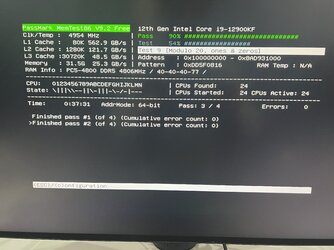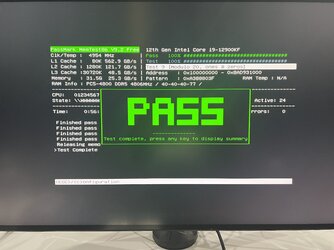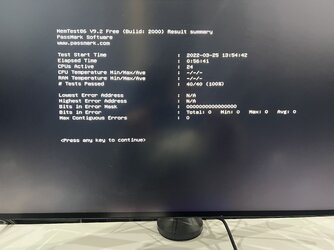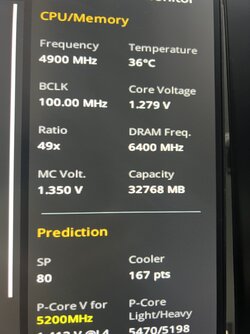Hmm I see, Im on Asus z690 formula bios 1003, I can do 6400 30-38-38-80 and tREFI at 115k and im only getting 58.5ns on AidaTry tREFI at about 112k+ and you will see about 3-4ns less and 2-3GB/s higher bandwidth. I say 112k as this was the limit for one of my kits and at 120k+ it was crashing. Gigabyte motherboard has 64k max. I saw some guys running stable at 130k so it's not a rule and better check it on your own.
Most other sub-timings are not helping at all, some are helping but the best if you try it on your own as I noticed that on every motherboard something a bit different works the best. I'm at work right now and I don't even remember all timings.
I would still recommend going as high as you can with the frequency and later trying to tighten the timings. The higher clock helps more than timings. Of course, there has to be some balance.
BIOS also changes a lot so if you have time then try 2-3 versions. For me, the latest versions for Apex mobo are significantly worse than betas from December. On Strix Z690-I Gaming it didn't matter much and I haven't seen any good betas. I have no idea what about MSI but I assume there are special OC versions that are better for OC and benching. At least each Unify generation had that.
6600 won't even post even with 1.55v,
what bios worked best for you?



